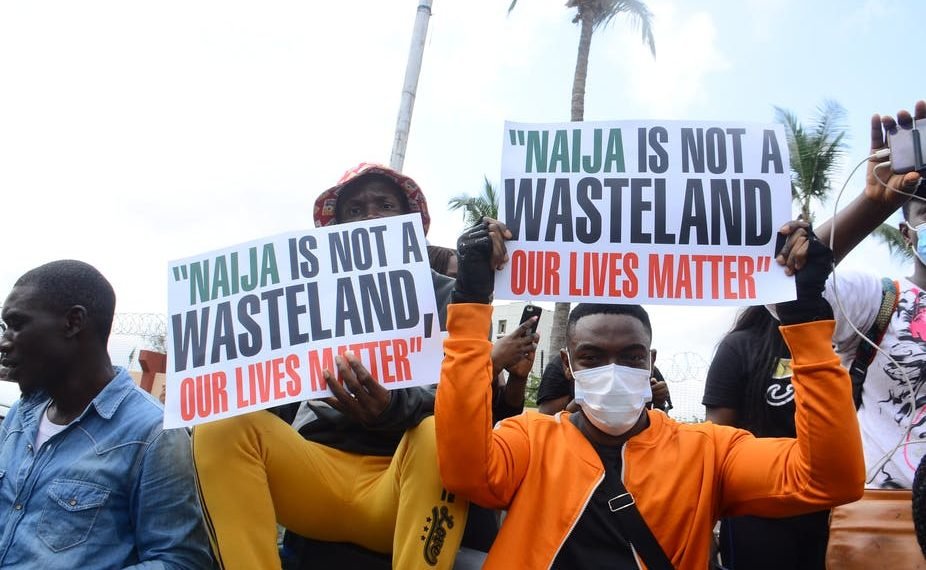A Lagos state government judicial panel has begun hearings into police brutality and violence during ENDSARS protests a week after the killing of activists protesting police brutality in Nigeria’s largest city.
The federal government has asked each of the country’s 36 states to set up an inquiry and a hearing in Lagos state on 27th October was the first one in the country.
President Muhammadu Buhari had tweeted that the panel had his “full support”, but protesters have maintained his administration has for years ignored their calls for reform.
Demonstrators took part in daily protests across Nigeria for nearly two weeks over widespread claims of kidnapping, harassment and extortion by a police unit known as the Special Anti-Robbery Squad (SARS).
The eight-person Judicial Panel of Restitution at the Lagos Court of Arbitration is looking at the claims against SARS, which was disbanded on October 11 in response to the protests, and also investigate the deadly incident at Lekki Toll Gate on 20th October.
Amnesty International had reported that at least 12 demonstrators had been shot dead at Lekki Toll Gate and another site last Tuesday by Army soldiers, who then took the bodies away. The Nigerian army claimed on Twitter that these reports were “fake news.”
The first witness at a Nigerian inquiry into police brutality, Okoye Agu, described how he was tortured and had teeth extracted by members of the now disbanded Special Anti-Robbery Squad (Sars) after his boss accused him of stealing from work.

In his testimony, Mr Agu said that in 2014, he was beaten, paraded in public as a criminal, suspended upside down and had two of his teeth pulled out. In addition, his car and mobile phones were sold without his permission by Sars officers.
The police have refused to pay him compensation despite a court order, he told the panel which is being led by a retired judge.
He said his family did not know where he was and when they arrived at the police station after 47 days of searching for him, his wife and mother were also beaten in front of him.
Mr Agu’s experiences echoed other accusations raised against SARS, a group associated with harassing, beating and sometimes killing many people.
The three other cases scheduled to be heard had to be adjourned as some of the relevant witnesses were not available. The anti-SARS marches have recently transformed into protests campaigning for police reforms to end government reports.
The physical protests have ended but a coalition of protest groups vow to continue online. Many of the protesters said they have received multiple threats and there has been an attempt to blame them for the chaos, looting, and burning that followed the shootings.
“The ones that died are the real heroes,” said DJ Switch, who streamed a live video on Instagram at Lekki Toll Gate when the shooting started. “The giant is asleep. The custodians of the country, the leaders of the country, they’re tiptoeing; they don’t want to wake the giant up, the giants are the people.”




















